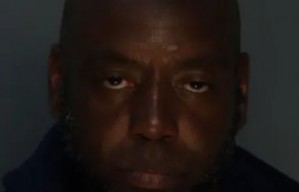A judge in White Plains, N.Y., has determined that it's not against the law for someone to curse on a speeding ticket, and now a town named Liberty, as well as a prosecutor, must stand trial for violating the First Amendment rights of a man who did so.
U.S. District Judge Cathy Seibel ruled last week that Willian Barboza's rights were violated when he was arrested in 2012 on an aggravated-harassment charge, according to the Washington Times.
The incident occurred when Barboza was caught speeding through Liberty in Upstate New York. He soon received a speeding ticket, and promptly sent in his payment of $200 dollars. However, the payment was accompanied by a message on the ticket which read: "F--k your s----y town bitches." He also replaced the town's name with the word "Tyranny."
Upon receiving the ticket, a judge, who according to court records was both upset and alarmed by the statement, referred the payment form to a prosecutor and ordered Barboza to appear in court, according to RT.
Barboza then drove from his Connecticut home to Upstate New York where he was reprimanded for his comments and told he would be arrested instead of accepting the payment. He was then handcuffed and taken away before being released on $200 bail.
Seibel said the arrest violated Barboza's rights, noting the criminal charge was soon dismissed on those grounds. She admitted Barboza's phrase was crude and offensive, but it "did not convey an imminent threat and was made in the context of complaining about government activity.
"That the court clerks who received plaintiff's message were apparently alarmed by it does not alter the analysis," she added, according to ABC News.
Barboza was quoted talking about the incident, saying he was treated as a criminal for a "few harmless words."
"Instead of protecting freedom of speech, government officers in Liberty handcuffed me, arrested me for a crime and almost sent me to jail because I harmlessly expressed my frustration with a speeding ticket," he said.
Barboza has since filed a lawsuit for the incident seeking unspecified damages.








